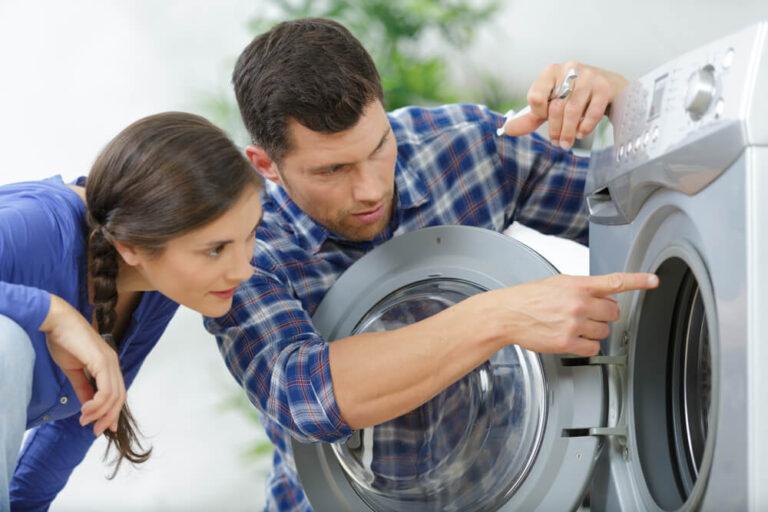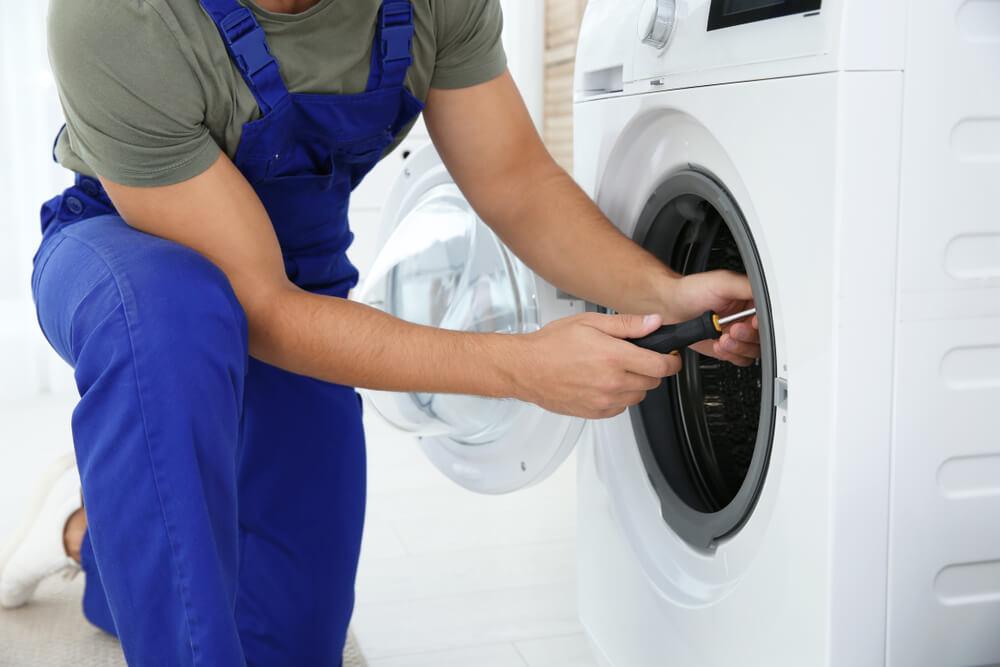Is It Worth Getting A Washing Machine Repaired?
Introduction
In today's fast-paced world, a functioning washing machine is more than just a convenience—it's an essential part of our daily lives. When it breaks experienced washing machine repair professionals down, the immediate response is often a mix of frustration and confusion. Should you repair it or replace it? That's the million-dollar question. In this article, we'll delve deep into whether it's worth getting a washing machine repaired, exploring practical considerations, costs, expert opinions, and much more. If you're searching for washing machine repair service near me, consider this guide your go-to resource.
Table of Contents
- 1.1 Types of Washing Machines
- 1.2 Common Problems with Washing Machines
- 2.1 Cost-Effectiveness Analysis
- 2.2 Age and Condition of the Appliance
- 3.1 Minor Issues vs Major Repairs
- 3.2 Signs That Indicate It's Time to Call a Professional
- 4.1 Typical Repair Costs
- 4.2 Factors Affecting Repair Costs
- 5.1 When DIY Makes Sense
- 5.2 Risks of DIY Repairs
- 6.1 How to Choose a Reliable Service Provider
- 6.2 Questions to Ask Your Repair Technician
- 7.1 Long-Term Savings from New Models
- 7.2 Environmental Considerations for Replacement
1. Understanding Your Washing Machine
1.1 Types of Washing Machines
Before we dive into whether repairs are worthwhile, let's understand the various types of washing machines:
- Top-Loading Washers: These machines are user-friendly and generally require less maintenance.
- Front-Loading Washers: Known for their efficiency and gentle washing action, front-loading machines tend to be more energy-efficient.
- Washer-Dryer Combos: Space-savers that combine both functions but may have limitations in load capacity.
Each type has its pros and cons regarding repairability and longevity.
1.2 Common Problems with Washing Machines
Some common issues that may necessitate repair include:
- Failure to start or stop mid-cycle.
- Water not draining properly.
- Excessive noise during operation.
- Leaking water.
Understanding these problems can give you insight into what might be worth repairing.
Is It Worth Getting A Washing Machine Repaired?
2.1 Cost-Effectiveness Analysis
When contemplating whether to repair your washing machine, consider performing a cost-benefit analysis:
- Calculate the cost of repairs against the price of a new unit.
- Factor in potential savings on utility bills with newer models that offer better energy efficiency.
Here’s a simple table for quick reference:
| Item | Estimated Cost | |--------------------------|---------------------| | Average Repair Cost | $100-$400 | | Average New Washer Price | $500-$1500 |
In many cases, if your repair costs exceed half the price of a new washer, it might be wiser to invest in replacement.
2.2 Age and Condition of the Appliance
The age and overall condition should also influence your decision-making process:
- If your washer is over ten years old and requires significant repairs, replacement may be more economical.
- Conversely, if it’s relatively new with minor issues, then repairs could extend its life at a fraction of the cost.
Identifying When to Repair
3.1 Minor Issues vs Major Repairs
Not all problems are created equal; some issues can be fixed easily while others require extensive repairs:
Minor Issues:
- Clogged filters or hoses can often be cleaned or replaced without professional help.
Major Repairs:
- Issues such as motor failures typically indicate significant problems that could warrant replacement instead.
Being able to distinguish between these can save you both time and money.
3.2 Signs That Indicate It's Time to Call a Professional
Keep an eye out for specific warning signs that suggest professional intervention is needed:
- Unusual noises such as grinding or banging.
- Persistent leaks despite troubleshooting efforts.
- Error codes displayed on digital interfaces.
If you notice any persistent problems like these, it's best to reach out for help rather than risk further damage.
The Cost of Repairs
4.1 Typical Repair Costs
Repair costs can vary widely based on several factors:
| Type of Repair | Estimated Cost | |----------------------------|---------------------| | Belt Replacement | $100-$200 | | Pump Replacement | $150-$300 | | Control Board Issues | $200-$400 |
Most average repairs usually fall within the range mentioned above, but being prepared with knowledge helps when discussing options with service providers.
4.2 Factors Affecting Repair Costs
Several factors determine how much you'll pay for repairs:
- Brand reputation—some brands are easier and cheaper to fix than others.
- Availability of parts—older models might have hard-to-find components.
By understanding these factors ahead of time, you’ll feel more empowered when dealing with repair estimates.

DIY Repairs: Pros and Cons
5.1 When DIY Makes Sense
Some simple fixes can often be tackled without calling in professionals:
Examples include:
- Cleaning out lint traps or filters.
However, make sure you're comfortable working with tools before attempting any repairs!
5.2 Risks of DIY Repairs
On the flip side, DIY isn’t always advisable—especially when dealing with electrical components or complex machinery which could lead to additional damage or even personal injury if mishandled.
So ask yourself: Are you knowledgeable enough for this? If not, it’s wise to call in an expert!
Finding the Right Repair Service
6.1 How to Choose a Reliable Service Provider
When seeking help from professionals, consider these tips for finding quality service providers:
1) Look up reviews online—check platforms like Yelp or Google Reviews.

2) Ask friends or family for recommendations; word-of-mouth feedback is invaluable!
3) Verify credentials—ensure they are licensed and insured before hiring anyone!

A little research goes a long way in ensuring satisfaction with your chosen service provider!
6.2 Questions to Ask Your Repair Technician
Before settling on one technician over another, consider asking questions such as:
- What’s included in your quote?
This will clarify expectations upfront!
When Replacement Makes More Sense
7.1 Long-Term Savings from New Models
Investing in newer models often results in lower utility bills due to improved energy efficiency standards set by manufacturers today—meaning long-term savings overshadow initial expenses!
7.2 Environmental Considerations for Replacement
Environmental impacts should weigh heavily on purchase decisions too! Opting for eco-friendly appliances reduces carbon footprints significantly while contributing positively towards sustainability efforts globally!
Customer Experiences: Real-Life Stories
Real-life experiences provide valuable insights into decision-making processes around appliance repairs! Here’s one story shared by Jane M.:
"I had my washer repaired three times within two years before realizing I was throwing money down the drain! Finally decided enough was enough—invested in an energy-efficient model that has saved me time AND money since then!"
Such testimonials underscore how critical informed choices really are!
Frequently Asked Questions (FAQs)
Q: What common issues lead people to seek washing machine repair services?
A: Common issues include failure to start/stopping mid-cycle, leaking water, excessive noise during operation among others.
Q: How do I know if my washing machine is too old to repair?
A: If it’s over ten years old & costly repairs arise frequently—it might make sense financially & practically just replace rather than fix repeatedly.
Q: Can I perform my repairs safely at home?
A: Yes! Simple tasks like cleaning filters/hoses can usually be done—but anything involving wiring/motors should ideally involve professionals due safety concerns involved here!
Q: How long does typical washing machine repair take?
A: Most repairs will typically take anywhere from one hour up until half-a-day depending on complexity; confirm timelines beforehand so expectations align accordingly!
Q: Are newer models really worth investing into? Why?
A: Absolutely! They boast improved efficiencies translating directly into reduced utility bills & they’re typically built sturdier nowadays compared older counterparts making them last longer overall too!
Q: What should I look out for when choosing my local washing machine repair service provider? A: Always check online reviews first; ask friends/family referrals & verify licensing/insurance beforehand too ensure professional credibility exists prior committing yourself there entirely upfront too!
Conclusion
Ultimately deciding whether "Is It Worth Getting A Washing Machine Repaired?" boils down primarily assessing costs associated alongside expected lifespans while also considering environmental impacts! Informed choices lead us towards greater satisfaction overall regardless if opting fixing existing appliances versus investing brand-new ones instead—weigh those options carefully folks because every dollar counts after all! Always keep handy resources like “washing machine repair service near me” available just-in-case emergencies arise unexpectedly later down-the-line!